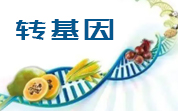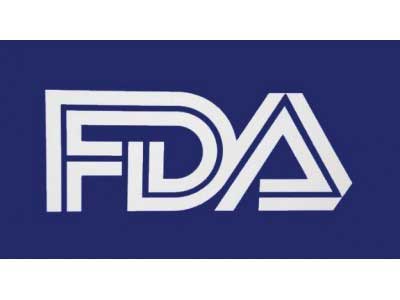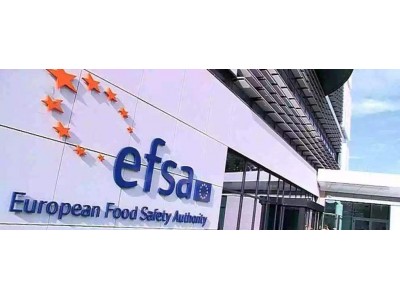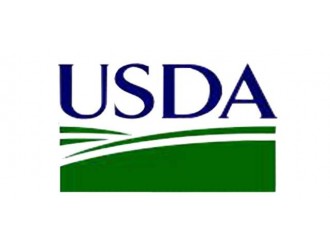йЈҹе“ҒдјҷдјҙзҪ‘жҠҘйҒ“пјҢж №жҚ®зҫҺеӣҪйЈҹе“ҒеҜјиҲӘзҪ‘пјҲwww.foodnavigator-usa.com)ж¶ҲжҒҜ,дёҖз§Қй»‘иғЎиҗқеҚңжҸҗеҸ–зү©еҫҲеҸҜиғҪдјҡжӣҝд»ЈйЈҹе“ҒиүІзҙ иғӯи„Ӯиҷ«зәўгҖӮж №жҚ®зҫҺеӣҪе°ҶдәҺ2011е№ҙ1жңҲ5ж—Ҙе®һж–Ҫзҡ„ж–°зҡ„ж Үзӯҫ规е®ҡпјҢиғӯи„Ӯиҷ«зәўзҡ„дҪҝз”Ёе°ҶеҸ—еҲ°йҷҗеҲ¶гҖӮ

The colour range of black carrot extract пјҲй»‘иғЎиҗқеҚңжҸҗеҸ–зү©зҡ„йўңиүІиҢғеӣҙпјү
еӣҫзүҮжқҘжәҗпјҡwww.separationsnow.com
иғӯи„Ӯиҷ«зәўиүІзҙ жҳҜз”ұиғӯи„Ӯзәўй…ёеҲ¶жҲҗпјҢиҖҢиғӯи„Ӯзәўй…ёжҳҜз”ұдё»иҰҒз”ҹй•ҝдәҺеҚ—зҫҺжҙІд»ҷдәәжҺҢдёҠзҡ„иғӯи„Ӯиҷ«иҷ«дҪ“з ”зЈЁиҖҢжҲҗгҖӮиҝҷдәӣйғҪжҳҜдј—жүҖе‘ЁзҹҘзҡ„пјҢдҪҶжҳҜиҝҷз§ҚиүІзҙ еҸҜиғҪдјҡеј•иө·жҹҗдәӣдәәзҫӨзҡ„иҝҮж•ҸеҸҚеә”гҖӮиҖҢиҝҷз§ҚиүІзҙ дҪңдёәдёҖз§Қе…ҚжЈҖзҡ„еӨ©з„¶иүІзҙ пјҢдёҖзӣҙиў«з”ҹдә§е•Ҷ们еңЁж ҮзӯҫдёҠж ҮжіЁдёә“йўңиүІж·»еҠ ”гҖӮ
然иҖҢпјҢд»Һ2011е№ҙ1жңҲ5ж—Ҙиө·пјҢзҫҺеӣҪйЈҹе“ҒиҚҜе“Ғз®ЎзҗҶеұҖпјҲFDAпјүе°ҶиҰҒжұӮеҲ¶йҖ е•ҶжҳҺзЎ®зҡ„е°ҶжӯӨжҲҗеҲҶж ҮжҳҺ“иғӯи„Ӯзәўиҷ«”жҲ–“иғӯи„Ӯзәў”пјҢиҝҷдёҖдёҫжҺӘеҜјиҮҙдёҖдәӣйЈҹе“ҒйҘ®ж–ҷеҲ¶йҖ е•ҶиҖғиҷ‘жӣҝд»Јж–№жЎҲгҖӮ
зӣ®еүҚеҫҲеӨҡз§Қзұ»дҪҝзҡ„дә§е“ҒйғҪз”Ёиҝҷз§ҚиүІзҙ пјҢеҰӮеҶ°ж·Үж·ӢгҖҒй…ёеҘ¶гҖҒжұҒйҘ®ж–ҷгҖҒй…’зұ»йҘ®ж–ҷе’Ңзі–жһңдә§е“ҒзӯүпјҢе®ғдјҡдҪҝдә§е“ҒжҳҫзҺ°зІүзәўиүІгҖҒзәўиүІжҲ–зҙ«иүІгҖӮ иүІиғЎиҗқеҚңжҸҗеҸ–зү©иғҪеё®еҠ©д»·ж је’Ңдҫӣеә”й—®йўҳиғӯи„ӮзәўеҺӮ家еӨ„зҗҶгҖӮ“еҗҲжҲҗиүІзҙ е·ІдёҚеҶҚжҳҜе…·жңүеҗёеј•еҠӣзҡ„йҖүжӢ©пјҢеӣ дёәеёӮеңәйңҖжұӮжҳҜжҺЁеҠЁе…ЁзҗғйЈҹе“ҒйҘ®ж–ҷиЎҢдёҡзҡ„ж Үзӯҫи¶Ӣеҗ‘жҙҒеҮҖе’ҢеӨ©з„¶”жҹҗз”ҹдә§е•ҶиҜҙгҖӮ еӨ©з„¶иүІзҙ пјҢеғҸй»‘иүІиғЎиҗқеҚңе’ҢиҫЈжӨ’жҸҗеҸ–зү©пјҢиғҪеңЁзІүзәўиүІеҲ°зәўиүІзҡ„иҢғеӣҙеҶ…дёәзӣёе…ізҡ„йЈҹе“ҒйҘ®ж–ҷжҸҗдҫӣиғӯи„Ӯиҷ«зәўжҳҜеӨ©з„¶жӣҝд»ЈиүІеҪ©гҖӮ
йЈҹе“ҒдјҷдјҙзҪ‘зј–иҖ…жіЁпјҡж–ҮдёӯжүҖжҸҗеҲ°зҡ„иғӯи„ӮзәўпјҢ并йқһжҲ‘еӣҪеӣҪж Үдёӯзҡ„иғӯи„ӮзәўиүІзҙ пјҢиҖҢжҳҜжҢҮжҲ‘еӣҪеӣҪж Ү2760дёӯзҡ„иғӯи„Ӯиҷ«зәўгҖӮе…ідәҺжҲ‘еӣҪеӣҪж Үдёӯзҡ„иҝҷдёӨз§ҚиүІзҙ зҡ„еҢәеҲ«пјҢеҰӮдёӢжүҖзӨә
[дёӯж–Ү]пјҡиғӯи„Ӯзәў
[иӢұж–Ү]пјҡPonceau 4R
[иҜҙжҳҺ]пјҡ1-(4-зЈәй…ё-1-иҗҳеҒ¶ж°®)-2-зҫҹеҹә-6,8-иҗҳдәҢзЈәй…ёдёүй’ зӣҗпјҢжҳҜз”ұ1-ж°Ёеҹәиҗҳ-4зЈәй…ёз»ҸйҮҚж°®еҢ–дёҺ2-иҗҳй…ҡ-6пјҢ8дәҢзЈәй…ёй’ еҒ¶еҗҲиҖҢжҲҗзҡ„еҒ¶ж°®жҹ“ж–ҷгҖӮдёәзәўиүІиҮіж·ұзәўиүІзІүжң«пјҢж— иҮӯпјҢжә¶дәҺж°ҙе‘ҲзәўиүІпјҢиҖҗзғӯжҖ§иҝҳеҺҹжҖ§зӣёеҪ“ејұгҖӮ
[дҪҝз”ЁйҷҗйҮҸ]пјҡж №жҚ®жҲ‘еӣҪгҖҠйЈҹе“Ғж·»еҠ еүӮдҪҝз”ЁеҚ«з”ҹж ҮеҮҶгҖӢпјҲGB 2760-1996пјү规е®ҡ:
з”ЁдәҺиұҶеҘ¶йҘ®ж–ҷгҖҒзәўиӮ иӮ иЎЈгҖҒеҶ°ж·Үж·Ӣж—¶жңҖеӨ§дҪҝз”ЁйҮҸдёә0.025g/kg
з”ЁдәҺиҷҫпјҲе‘іпјүзүҮж—¶жңҖеӨ§дҪҝз”ЁйҮҸ0.05g/kg
з”ЁдәҺзі–жһңеҢ…иЎЈж—¶жңҖеӨ§дҪҝз”ЁйҮҸ0.10g/kg
з”ЁдәҺиӮүеҲ¶е“ҒеҠ е·Ҙж—¶еҸ—е…¶иҖҗзғӯжҖ§еҪұе“Қдё»иҰҒз”ЁдәҺдҪҺжё©зҶҹиӮүзҒҢеҲ¶е“ҒдёӯгҖӮпјҲи’ёз…®жё©еәҰ<100в„ғпјүгҖӮеӣҪ家йҷҗйҮҸдёә0.05/g/kg,е»әи®®з”ЁйҮҸдёәпјҲ0.01пҪһ0.02пјүg/kgгҖӮз”ЁдәҺй«ҳжё©зҶҹиӮүзҒҢеҲ¶е“ҒпјҲи’ёз…®жё©еәҰеңЁ100пҪһ121в„ғпјүпјҢеҸҜе°Ҷиғӯи„ӮзәўдёҺзәўжӣІзәўиүІзҙ й…ҚеҗҲдҪҝз”ЁпјҢе»әи®®з”ЁйҮҸдёәпјҡиғӯи„ӮзәўжҢү0.005пҪһ0.1g/kgеҠ е…ҘпјҢзәўжӣІзәўиүІзҙ жҢү0.05пҪһ0.08g/kgеҠ е…ҘгҖӮй…ұеҚӨиӮүеҲ¶е“ҒеңЁи…ҢеҲ¶иҝҮзЁӢдёӯеҗҢж ·иҰҒеҠ е…ҘиЎҢд№Ӣжңүж•ҲйҮҸзҡ„иғӯи„ӮзәўгҖӮ
[еӨҮжіЁ]пјҡеҗҢдёҖиүІжіҪзҡ„иүІзҙ еҰӮж··еҗҲдҪҝз”Ёж—¶пјҢе…¶з”ЁйҮҸдёҚеҫ—и¶…иҝҮеҚ•дёҖиүІзҙ е…Ғи®ёйҮҸпјҢеӣәдҪ“йҘ®ж–ҷеҸҠй«ҳзі–жһңжұҒжҲ–жһңе‘ійҘ®ж–ҷиүІзҙ еҠ е…ҘйҮҸжҢүиҜҘдә§е“Ғзҡ„зЁҖйҮҠеҖҚж•°еҠ е…ҘгҖӮ
иғӯи„Ӯиҷ«иүІзҙ гҖӮ
жҲҗеҲҶпјҡдё»иҰҒжҲҗеҲҶдёәиғӯи„Ӯзәўй…ёгҖӮ
жҖ§иҙЁдёҺжҢҮж ҮпјҡеңЁPHпјқ4.5е‘Ҳй»„иүІпјӣPHпјқ5.0е‘Ҳж©ҷиүІпјӣPHпјқ5.5е‘ҲзәўиүІпјӣPH≥6.0е‘Ҳзҙ«зәўиүІгҖӮиүІзҙ е‘Ҳж©ҷиүІгҖҒзәўиҮізҙ«зәўиүІзҡ„еҢәй—ҙзҡ„иҖҗе…үжҖ§иҫғеҘҪпјҢиҖҢPHеҖјзәҰдёә4.5е’Ң7.0-7.5ж—¶иҖҗе…үжҖ§иҫғе·®гҖӮеҜ№зғӯзЁіе®ҡжҖ§иүҜеҘҪгҖӮйҒҮй“ҒзҰ»еӯҗиүІи°ғеҸҳж·ЎжҲ–ж— иүІгҖӮеӨҚеҗҲзЈ·й…ёзӣҗеҜ№иүІзҙ жңүжҠӨиүІдҪңз”ЁгҖӮ
жқҘжәҗпјҡд»Һиғӯи„Ӯиҷ«зәўдёӯжҸҗеҸ–гҖӮе°Ҷиғӯи„Ӯиҷ«зәўзҡ„е№ІдҪ“зЈЁз»ҶпјҢз”Ё60пјҚ70в„ғзҡ„зғӯж°ҙжөёжіЎпјҢ并дёҚж—¶жҗ…жӢҢпјҢз»ҸиҝҮдёҖеӨ©е·ҰеҸіеӨ§йғЁеҲҶиүІзҙ еҸҜиў«жҸҗеҸ–дёӢжқҘпјҢеҶҚз»Ҹ第дәҢж¬ЎжөёжҸҗеҲҷеҮ д№ҺеҸҜиҫҫ100пј…зҡ„жҸҗеҸ–зҺҮгҖӮдёӨж¬Ўж»Өж¶ІеҗҲ并пјҢеҮҸеҺӢжө“зј©пјҢеҫ—еҲ°иүІзҙ гҖӮ
з”ЁйҖ”пјҡеҸҜз”ЁдҪңй…’гҖҒж°ҙжһңжөҶгҖҒеҶ·йҘ®зӯүйҘ®ж–ҷгҖҒзі–жһңгҖҒзі•зӮ№д»ҘеҸҠиӮүзұ»гҖҒйҰҷиӮ зӯүзҡ„зқҖиүІеүӮпјҢиҝҳеҸҜз”ЁеңЁеҢ–еҰҶе“ҒдёӯгҖӮ
д»ҘдёҠиүІзҙ зҹҘиҜҶйҖүиҮӘйЈҹе“Ғи®әеқӣеё–еӯҗпјҡhttp://bbs.www.sqrdapp.com/viewthread.php?tid=277500
жң¬жҠҘйҒ“з”ұйЈҹе“ҒдјҷдјҙзҪ‘зј–иҜ‘ж•ҙзҗҶпјҢд»…дҫӣйЈҹе“ҒиЎҢдёҡзӣёе…ідәәеЈ«еҸӮиҖғпјҢиҜҰз»ҶеҶ…е®№д»ҘеӣҪеӨ–еҺҹж–ҮжҠҘйҒ“дёәеҮҶгҖӮ
еҺҹж–Үең°еқҖпјҡhttp://www.foodnavigator-usa.com/Financial-Industry/Black-carrot-extract-alternative-to-carmine-coloring
еҺҹж–ҮжҠҘйҒ“пјҡ
Black carrot extract alternative to carmine coloring
By Caroline Scott-Thomas, 02-Aug-2010
Related topics: Financial & Industry, Flavors and colors
Kalsec has introduced a black carrot extract as a possible replacement for the food coloring carmine, which will be subject to new labeling requirements in the United States from January 5, 2011.
Carmine is made from carminic acid, produced from the ground bodies of cochineal insects, primarily grown on South American cactus. It is known to cause rare but potentially severe allergic reactions in some people, including anaphylaxis, but as a certification-exempt color additive, food manufacturers have been able to list it as ‘color added’.
However, from January 5, the Food and Drug Administration (FDA) will require manufacturers to call it out on ingredient statements as ‘carmine’ or ‘cochineal’, leading some food and beverage manufacturers to consider alternatives.
The coloring is currently used in a variety of products such as ice creams, yogurts, fruit drinks, alcoholic drinks and candy products, to which it brings a characteristic pink, red or purple color.
Kalsec said that its black carrot extract could help manufacturers deal with pricing and supply issues for carmine.
“Synthetic replacements are no longer an attractive option as the global market demand is driving toward clean and natural labeling in the food and beverage industry,” the company said.
Kalsec said that natural colors, like its black carrot and paprika extracts, can provide natural alternatives for hues associated with carmine ranging from pink to red in some foods and beverages.
“Black carrot is often an appropriate replacement when a pink to red hue is desired,” the company said.
However, the pink shade of carmine – generally sold as 52 percent pigment as a water insoluble color for confectionery, dairy products, dry seasoning and baked goods – is difficult to match, Kalsec said, and the company recommends that manufacturers work together with their color supplier to determine the best possible carmine replacement.
Kalsec is not alone in offering alternatives to carmine and cochineal extracts. At the recent IFT expo in Chicago, for example, coloring supplier DD Williamson showcased its natural hue alternatives based on purple sweet potato, paprika, red beet, and custom blends.











 ең°еҢәпјҡ
ең°еҢәпјҡ






 йІҒе…¬зҪ‘е®үеӨҮ 37060202000128еҸ·
йІҒе…¬зҪ‘е®үеӨҮ 37060202000128еҸ·



